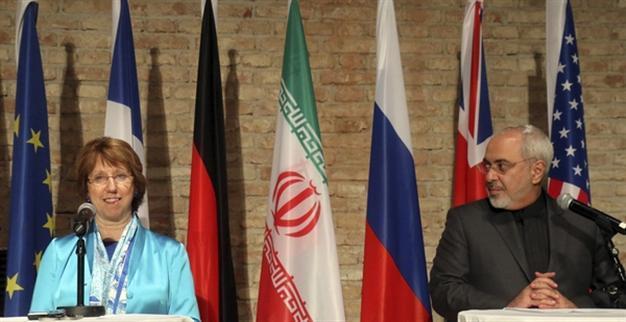Iran nuke talks to be extended for 4 months
VIENNA - Associated Press

European foreign policy chief Catherine Ashton, left, and Iranian Foreign Minister Mohammad Javad Zarif, right, adress the media after closed-door nuclear talks in Vienna, Austria, Saturday, July 19, 2014. (AP Photo/Ronald Zak)
Iran and six powers on Saturday extended nuclear talks until Nov. 24, in recognition that their differences were too big to reach a deal by the informal deadline of Sunday.
The decision was expected, with much of Friday spent on debating not obstacles standing in the way of an agreement but how long the add-on talks should go on and other related details.
"We have made tangible process on some of the issues," said EU foreign policy chief Catherine Ashton, who coordinated the talks. But she cautioned of "significant gaps on some core issues which will require more time and effort."
Iranian Foreign Minister Mohammad Javad Zarif read the same statement in Farsi. Neither took questions.
U.S. Secretary of State John Kerry, who flew into Vienna a week ago to try and advance the talks, also spoke of "tangible progress" in a statement released in Washington, while noting substantial differences on some issues. He said stretching out the talks for four more months "is warranted by the progress we’ve made and the path forward we can envision."
However, Republican U.S. Rep. Ed Royce, chairman of the House Foreign Affairs Committee, said in a statement that he did not see the extension as progress.
"It looks like the Iranians won extra time with a good cop-bad cop routine," he said.
Since the current phase of talks began early this year, the biggest obstacle has been uranium enrichment, which can make both reactor fuel and the core of a nuclear warhead. Iran says it does not want such weapons but demands it be allowed to keep its present program. The United States and its Western allies want deep cuts.
Neither Zarif nor Ashton named a time or venue for the next meetings saying only they will be held in "coming weeks."
